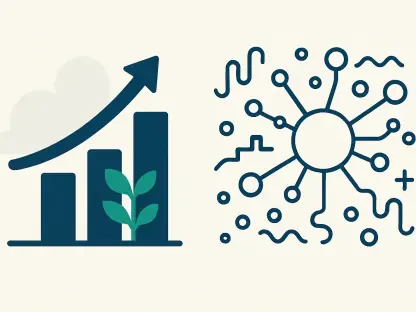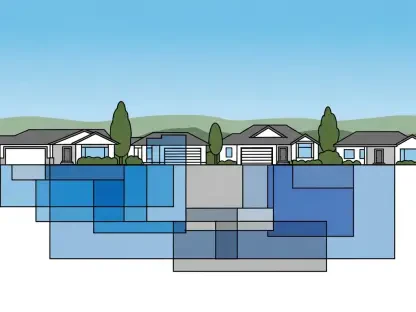Residents of Florida are familiar with the annual challenge presented by the Atlantic hurricane season, beginning each June and often reaching its peak with heightened activity by September. In recent times, the devastation caused by these storms has surged, leading homeowners to increasingly focus on preparedness strategies. While physical preparations, such as boarding windows and deploying sandbags, form a fundamental layer of defense, it’s equally important to understand one’s insurance coverage before the unpredictable storms strike. A common misconception is that standard homeowners insurance will cover all hurricane-related damages, when in reality, flood insurance is typically separate. Standard policies might cover wind damage, but flooding, a significant threat during hurricanes, often requires specific flood coverage. As predicting the strength and path of hurricanes can be challenging, homeowners need to be fully equipped, both physically and in terms of insurance knowledge, to safeguard their properties in the face of potential hurricanes.
Understanding Your Insurance Liability
Grasping the intricacies of homeowners insurance policies is crucial for Florida residents facing the hurricane season. At the forefront, homeowners must scrutinize the “Exclusions” section of their policies to avoid unpleasant surprises. This section outlines what is not covered, and understanding these exceptions can prevent devastating financial losses. Additionally, the “Duties After Loss” segment details homeowner responsibilities in the aftermath of a storm, ensuring claims are processed successfully and expeditiously. This preparation extends beyond just post-storm activities; proactive measures include documenting existing conditions and valuable possessions within the home. Enhanced with videos and photos, this documentation facilitates accurate and timely claims processing. As claims adjusters face high volumes in the wake of hurricanes, comprehensive evidence of pre-storm conditions can streamline the assessment process and help secure deserving compensation. Addressing these insurance complexities upfront allows homeowners to confidently navigate the chaos that hurricanes can bring.
Vital for seamless recovery post-disaster is the digital safeguarding of essential documents. By using cloud storage solutions, homeowners can ensure accessibility to vital papers, such as insurance documents, identification, and property deeds, even during power outages or evacuations. This strategy maximizes the fluidity of the claims process, preventing anything from going awry due to physical document loss. Homeowners are encouraged to stay abreast of any provider updates concerning coverage changes pertinent to hurricane threats, so as to make informed decisions relating to policy amendments or enhancements. Discerning which policies necessitate additional coverage requires a nuanced understanding of potential hurricane impacts. As hurricane season can unpredictably alter its course, ensuring comprehensive insurance protection remains a vital aspect of preparation. Those who prepare thoroughly may experience reduced stress and more manageable reconstruction efforts, keeping the path to recovery clear and effective.
Practical Tips for Hurricane Preparedness
The multifaceted approach to hurricane preparedness involves more than just insurance readiness. Securing physical infrastructure is paramount, beginning with fortifying windows and doors against wind and projectiles. Investing in storm shutters or boards can significantly reduce the risk of structural damage. For homes in flood-prone zones, strategic sandbag placement can limit water ingress, safeguarding interiors from ruinous flooding. Often overlooked, roof inspections hold vital importance; ensuring rooftops are intact and drainpipes are clear can mitigate damage from heavy rainfall, reducing potential out-of-pocket repair costs. Landscaping can also be adjusted by trimming trees and securing any outdoor items, which can become hazardous projectiles in high winds. These physical preparations lay the groundwork for minimizing damage, allowing homeowners to focus on ensuring personal safety during emergencies.
On personal safety, establishing an evacuation plan is indispensable for families residing in hurricane-prone areas. Identifying safe locations and practicing routes can alleviate stress during mandatory evacuations. As power outages are common during storms, assembling an emergency kit stocked with flashlights, batteries, portable chargers, non-perishable food, and water ensures sustenance during extended outages. Communication plans with neighbors and family can facilitate better coordination for collective safety. Moreover, homeowners should maintain awareness of official updates from the National Hurricane Center for timely guidance and alerts. Embracing technology, employing emergency alert apps can provide real-time insights, empowering homeowners to make informed decisions swiftly. By integrating these physical preparations and safety strategies, Florida residents can effectively shield themselves and their properties against the imminent threat posed by the hurricane season.
Navigating Post-Storm Challenges
Florida residents are well-acquainted with the annual challenge posed by the Atlantic hurricane season, which starts each June and often escalates by September. Recently, the destructive power of these storms has intensified, prompting an increased emphasis on preparedness among homeowners. While physical preparations, such as boarding up windows and using sandbags, provide a crucial line of defense, understanding one’s insurance coverage before these unpredictable storms hit is equally vital. A prevalent misconception is that standard homeowners insurance covers all hurricane-related damage. In truth, flood insurance is often separate. While many standard policies handle wind damage, flooding—a major threat during hurricanes—usually requires specific flood insurance. Given the difficulty in forecasting the intensity and path of hurricanes, it’s imperative for homeowners to be thoroughly prepared, both in physical terms and through comprehensive insurance knowledge, to effectively protect their properties from potential hurricane impacts.









